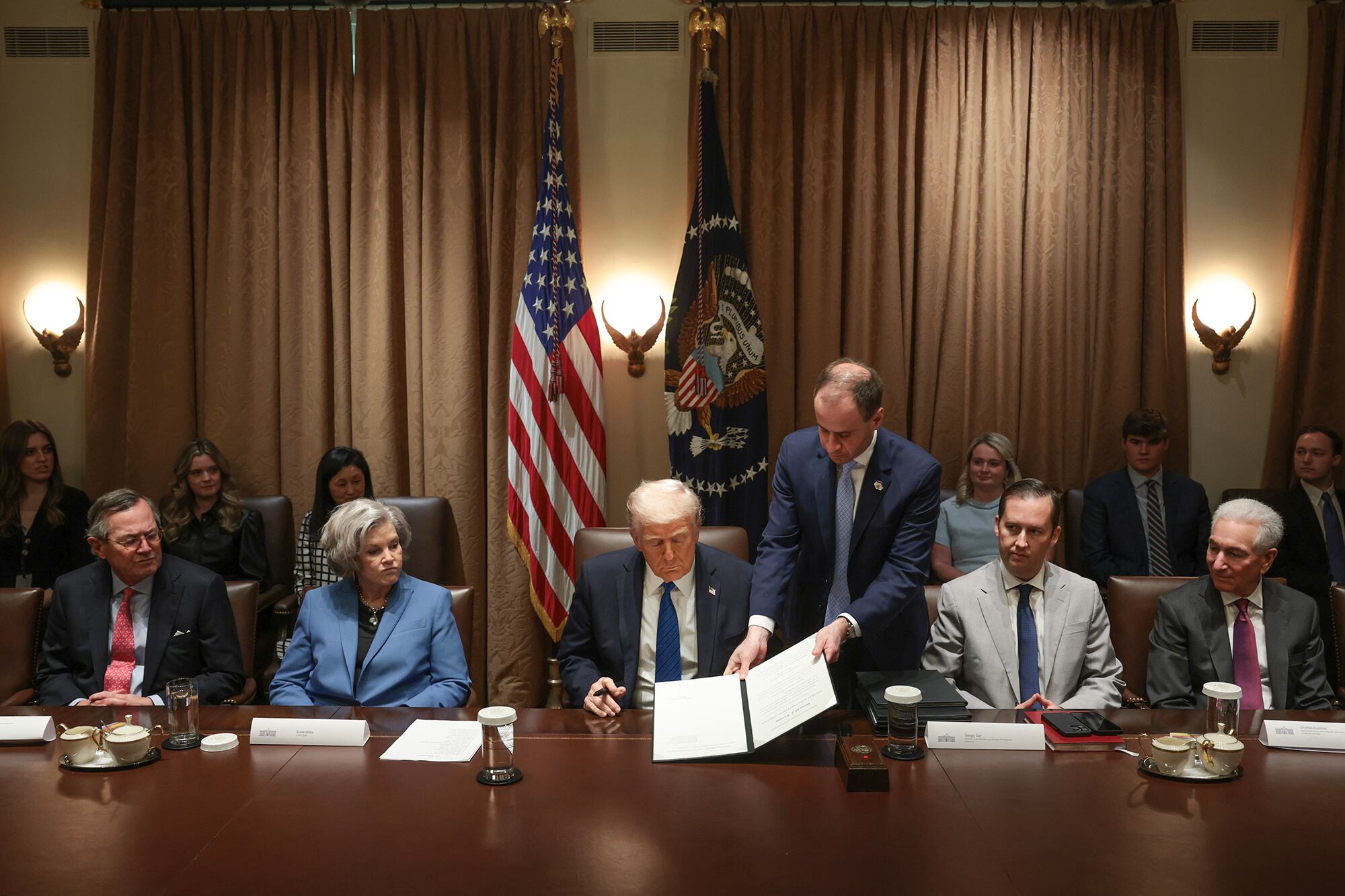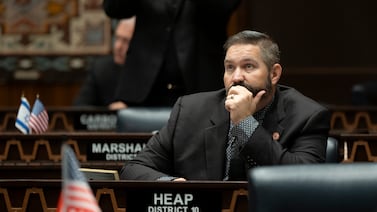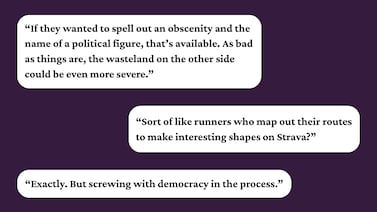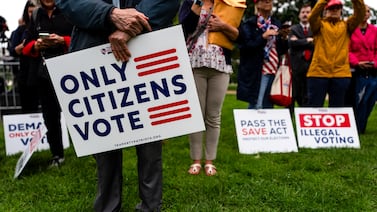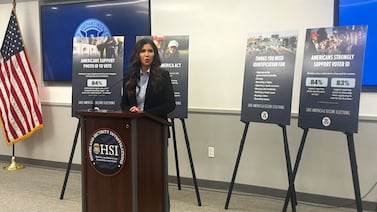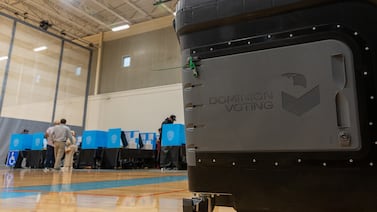Votebeat is a nonprofit news organization reporting on voting access and election administration across the U.S. Sign up for our free weekly newsletter to get the latest.
What happened?
A federal judge Friday issued a second preliminary injunction blocking some provisions of the sweeping executive order on elections that President Donald Trump signed in March.
Judge Denise Casper blocked provisions ordering the U.S. Election Assistance Commission to take steps to require documentary proof of citizenship from people registering to vote and requiring federal voter registration agencies to “assess” the citizenship of individuals who receive public assistance before providing them a voter registration form. Those provisions were also blocked by a federal judge in Washington D.C. last month in a separate case.
Casper also blocked parts of the order telling the U.S. Justice Department to enforce a ballot receipt deadline of Election Day and ordering the EAC to withhold federal funds from states that did not comply with it. Casper wrote that the states challenging the provisions had “shown the risk of irreparable harm” if they were permitted to go into force, and the provisions would require the costly and difficult process of revamping states’ voter registration processes, as well as hampering “the registration of eligible voters, many of whom lack ready access to documentary evidence of citizenship.”
Casper specified that the part of the order blocking enforcement of the Election Day ballot receipt provisions applies to 13 of the 19 states that filed the challenge: California, Nevada, Massachusetts, Arizona, Colorado, Hawaii, Illinois, Maryland, Michigan, New Jersey, New Mexico, New York, and Rhode Island.
The Justice Department did not immediately respond to a request for comment.
What’s the dispute?
Democratic attorneys general in 19 states together sued Trump in April over his sweeping executive order on elections, arguing that the president has no power under the Constitution to set election rules.
Trump’s March 25 order would require people to provide documentary proof of citizenship when registering to vote. It would also set Election Day as the national deadline for receiving mail ballots, require the U.S. Election Assistance Commission to rewrite voting machine certification standards, and withhold federal funds from states that don’t use compliant machines, among other things.
The states challenged multiple provisions of the order, including the proof-of-citizenship requirement and the instructions to federal agencies responsible for instituting it; the mail ballot deadline; and the threat to withhold federal funds for noncompliance.
The order “interferes with States’ inherent sovereignty and their constitutional power to regulate the time, place, and manner of federal elections,” the states wrote in their lawsuit.
At a June 6 hearing, Justice Department lawyer Bridget O’Hickey said the order sought to impose uniformity on a patchwork of state laws in order to boost public confidence in elections, the Associated Press reported.
The states’ lawsuit is one of several challenging Trump’s executive order on elections. In April, a federal judge issued a preliminary injunction blocking some provisions, including the one requiring documentary proof of citizenship. That ruling came in a separate lawsuit brought by a coalition of nonprofit groups that had been consolidated with one brought by Democratic Party groups.
Who are the plaintiffs?
The named plaintiffs are the attorneys general of Arizona, California, Colorado, Connecticut, Delaware, Hawaii, Illinois, Maine, Maryland, Massachusetts, Michigan, Minnesota, Nevada, New Jersey, New Mexico, New York, Rhode Island, Vermont, and Wisconsin. All are Democrats. The litigation was led by California Attorney General Rob Bonta and Nevada Attorney General Aaron Ford.
Separate lawsuits challenging the executive order are pending in other federal courts, including the consolidated case filed by nonprofits and Democratic Party groups pending in U.S. District Court in Washington, D.C., and a separate case filed by Oregon and Washington state pending in the Western District of Washington.
What are they asking for?
The lawsuit was filed in U.S. District Court in Massachusetts and assigned to Casper, who was nominated in 2010 by President Barack Obama. The states asked Casper to declare the challenged provisions of the executive order null and void, and prohibit federal officials from enforcing them.
Read more Votebeat coverage of the executive order on elections:
- Trump’s executive order on elections is partly blocked by federal court
- Judge hears challenges to Trump’s executive order on regulating elections
- Trump orders an overhaul of how elections are run, inviting a likely legal challenge
- New Trump order targets barcodes on ballots. Why? And what will that mean?
- With Trump’s executive order, thousands of military voters could see their rights curtailed
- First lawsuits against Trump’s election order cite text of Constitution
- Democratic attorneys general sue Trump over elections executive order
Carrie Levine is Votebeat’s editor-in-chief and is based in Washington, D.C. She edits and frequently writes Votebeat’s national newsletter. Contact Carrie at clevine@votebeat.org.

